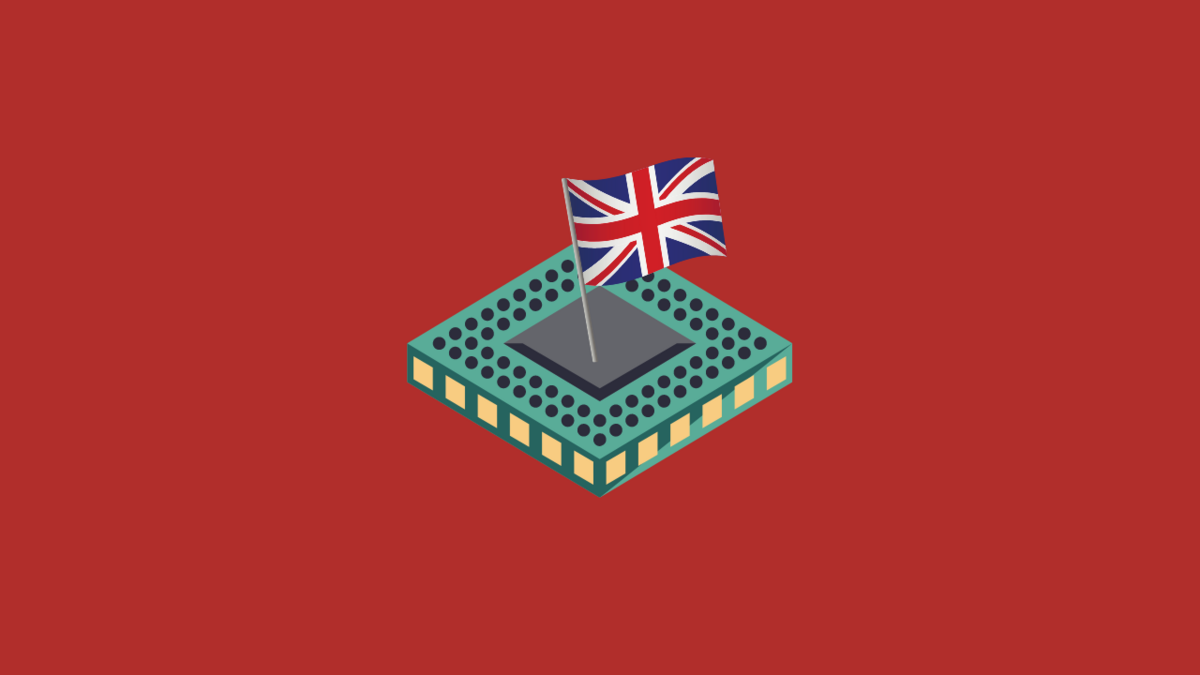Chip Crisis

Hi ZipLawyer! I'm Ludo Lugnani and this is ZipLaw: an independent newsletter covering unique news stories. We explain how each story impacts law firms and their clients so that you can stand out in interviews and applications and develop your Commercial Awareness!
Today's newsletter is an 8 min read:
- 🇬🇧 Chip Crisis: Why is the UK particularly vulnerable to a semiconductor crisis?
- ➕ Plus: US and China meet up, Sweden's NATO bid, Sunak looks for EU deal and new Facebook subscriptions.
📰 News Briefing
- 🇺🇸 The US and China met in Germany to reconcile the conflict caused by a Chinese balloon, but the meeting between their top diplomats highlighted the difficulty in reaching a compromise. Secretary of State Antony Blinken and China's State Councilor Wang Yi bickered over a range of issues, from the balloon and Taiwan to North Korea and Russia. Blinken also stated that China was considering giving Russia weapons for its conflict in Ukraine, a move that would escalate tensions even further.
- 🇸🇪 Sweden's Prime Minister, Ulf Kristersson, cautioned against breaking apart the joint application of Sweden and Finland to join NATO. Such a move would complicate the military cooperation between the two neighbouring countries. Turkey, one of NATO's members, has threatened to oppose Sweden's application. Therefore, the alliance may have to admit the two countries separately.
- 🇬🇧 Rishi Sunak is preparing to announce a deal with the European Union. The move could cause friction with Northern Ireland unionists and members of Sunak's own party. The deal aims to resolve the impasse in Northern Ireland, which has disrupted relations with the EU, Britain's largest trading partner since the Brexit deal was enacted.
- 💰 Meta Platforms, the parent company of Facebook, has launched Meta Verified, a subscription service that includes account verification badges and several other perks and features. The service will cost $11.99 per month, or $14.99 if purchased through the iOS app, and is aimed at content creators.
🤿 Deep Dive
Chip Crisis
In brief:
- The UK is currently facing a significant challenge in the form of a global semiconductor and chip shortage. This has the potential to cause huge disruption in supply chains and impact a wide range of industries.
TSMC's key role
Taiwan-based TSMC is a key global supplier of chips, producing 70% of smartphone chipsets and 35% of the world's automotive microcontrollers. Any disruption to TSMC's ability to supply chips could significantly impact various industries, from mobile phones to cars. As a result, the UK, which is heavily reliant on imports of chips, is particularly vulnerable to any shock in the global supply chain and TSMC's production.
The impact of a Chinese invasion of Taiwan
China sees Taiwan as part of its territory, which could lead to a military conflict in the region. If this were to happen, it could have a severe impact on the global supply of chips. The UK's Office for Budget Responsibility has estimated that such an event could drive borrowing up by £20 billion in one year, with electronic goods prices soaring. Within four years, 2% of GDP growth would be wiped off, rising to 5.2% of GDP in a little over a decade, which could blow a £57 billion permanent hole in the public finances (quite a big impact).
Why the UK is particularly exposed
Less than 1% of global chip production is in the UK, but UK manufacturers account for 2% of global consumption. The UK's departure from the European Union has left it particularly exposed in the battle for chip resilience. The manufacturing capacity that could have been based in the UK as a single-market member will now be located inside the bloc where there are no border frictions. Additionally, building a domestic industry is challenging as commercial-scale chip plants cost upwards of £10 billion and take at least three years to construct.
Credit: Bloomberg
What the UK government is doing to address the issue
Under the new UK strategy, public funding will be provided through existing programs including the British Business Bank, Innovate UK, and the National Security Strategic Investment Fund. The government will provide direct taxpayer funding to support British semiconductor companies, including seed money for startups and help for existing firms to scale up. Ministers will set up a semiconductor task force to coordinate public and private support to ramp up UK manufacturing of compound semiconductors in the next three years.
Building up research and development hubs
Aside from directly funding companies, the UK will be heavily relying on trading partners such as the US and EU. But this can be problematic. The pandemic has shown that these relationships can fail in times of crisis and the UK will not want to be left behind while its trading partners hold on to their chip supplies. The only company other than TSMC that makes the smallest cutting-edge chips is South Korea's Samsung Electronics. An incursion into Taiwan could set off protection policies with major producing countries holding off on to their chip supply.
How does this Impact Law Firms and their Clients?
Note: In this section, we consider how law firms' clients may be affected by the story we discussed. We then explain how law firms can help, and which particular legal departments could see an increase in work and why.
💼 What does this mean for law firm's clients?
Clients in the technology and electronics industry: The global semiconductor and chip shortage would have a negative impact on clients in the technology and electronics industry as they heavily rely on the import of chips for their products. The shortage could cause disruption in their supply chains, leading to delays in production, increased costs, and potential loss of revenue. For example, TSMC is a key producer of smartphone chipsets and automotive microcontrollers. Any shock to TSMC's ability to supply chips would cause significant problems for companies in these industries.
Clients in the automotive and defence industry: Clients in these industries would also be negatively impacted by the global chip shortage, as chips are essential components in the production of cars and defence equipment. A stable supply of high-quality chips is crucial for clients in these industries who work on high-volume orders and need these chips to produce cars and defence equipment. A reduction in chips would cause major production bottlenecks in these industries and ultimately cut into their profits as companies are unable to produce and sell new products.
Clients in the semiconductor industry: These companies could greatly benefit from government subsidies to grow their operations in the US, EU, China and the UK. The US and the European Union last year set out subsidy and investment plans for their domestic industries — $52.7 billion earmarked from Washington and €43 billion from Brussels. China has already provided about $130 billion of state-backed investment in its industry. The UK government plans to provide direct taxpayer funding for startups and help existing firms to scale up, as well as provide new incentives for private venture capital.
UK Government: The UK is heavily reliant on imports of chips, and any shock to the global supply chain could result in significant disruption to supply chains, causing a ripple effect on various industries, including the automotive and electronics industries. Furthermore, delays in formulating a strategy to address the shortage could lead to companies reconsidering their investments in the UK. This could negatively impact the UK government's client base, as it could result in a decrease in the number of companies looking to establish operations in the UK. On the positive side, the UK government's proposed strategy to invest in British semiconductor companies could lead to new business opportunities and growth in the industry (but this won't be easy!).
⚖ Which legal departments would this impact?
International Trade
Tariffs and trade agreements: International trade lawyers may be called upon to advise semiconductor companies on the legal implications of changes to trade agreements and tariffs on chip imports and exports.
- Example: If a new trade agreement is negotiated between the UK and a major chip-producing country, they would advise semiconductor companies on how this would affect their business operations. Additionally, if new tariffs are imposed on chip imports in response to the global chip shortage, the department would guide companies on how to comply with the new regulations and ensure their business practices remain lawful.
Export controls: With the potential for increased government involvement in the chip industry, there may be new regulations on the export of semiconductor technology to other countries. International trade lawyers would need to advise semiconductor companies on how to navigate these regulations and ensure their business practices remain compliant.
- Example: If a UK-based semiconductor company were to license its technology to a foreign company to increase chip production, the department would advise on the legal aspects of the licensing agreement, including how to comply with the relevant export control regulations.
Commercial
Advising on supply chain contracts: Companies in the semiconductor industry may be required to enter into complex supply chain contracts with suppliers and distributors to ensure the steady supply and distribution of chips. In the context of a potential chip shortage, commercial lawyers would be responsible for advising on the legal aspects of drafting, negotiating, and enforcing such contracts. The commercial contracts legal department would also need to advise on the potential risks and liabilities associated with supply chain contracts, such as the risks of supply chain disruptions and breach of contract.
- Example: In the event of a chip shortage, companies and governments may be unable to fulfil their contractual obligations related to the supply and distribution of chips. In such cases, commercial lawyers may be required to advise on the interpretation and enforceability of force majeure clauses in their contracts as well as on the potential liabilities and risks associated with invoking such clauses. Force majeure clauses are provisions that allow parties to suspend or terminate their contractual obligations in the event of an unforeseeable event that is beyond their control, such as a natural disaster or a pandemic.
Advising governments on trade agreements: The global chip shortage could have implications for trade agreements between countries. Commercial lawyers would be responsible for advising governments on the legal implications of potential changes to these agreements.
- Example: They would review and advise on the terms of any trade agreements related to the semiconductor industry to ensure that the agreements are legally sound and enforceable. Additionally, they would provide guidance on the appropriate terms for any new trade agreements related to the semiconductor industry, including tariffs, intellectual property protection, and regulatory compliance.
Intellectual Property (IP)
IP lawyers will advise semiconductor companies on licensing their technology to other companies. This includes negotiating the terms of licensing agreements, protecting the company's intellectual property, and enforcing the terms of the agreement.
- Example: If a semiconductor company has developed a new chip design that is in high demand but does not have the capacity to produce enough chips to meet that demand, it may decide to license the technology to other companies. IP lawyers would be responsible for advising the company on the legal aspects of licensing the technology, including negotiating the terms of the agreement and protecting the company's intellectual property.
IP lawyers may also be called upon to advise governments on the legal implications of protecting national security and defence. In the context of a potential chip shortage, IP lawyers may be responsible for advising governments on the legal aspects of regulating the export of sensitive technology and imposing restrictions on foreign investment in semiconductor companies.
- Example: If a foreign entity (either private or government-controlled) were to attempt to acquire or invest in a UK-based semiconductor company to gain access to the UK's chip supply, IP lawyers would advise the UK government on the legal aspects of protecting the intellectual property and imposing regulations on the export of sensitive technology. (Check out our points on Corporate lawyers below for more on this!)
Corporate
One specific example of the Corporate legal department's role in advising companies in the semiconductor industry is in relation to the legal aspects of acquiring or partnering with other semiconductor companies. Semiconductor companies are covered as producers of Advanced Materials under The National Security and Investment Act 2021 (NSIA). This means that any acquisition or investment by a non-UK entity should be notified to the government.
- Example: If a foreign country were to attempt to acquire UK-based semiconductor companies to gain access to the UK's chip supply, corporate lawyers would be responsible for advising the companies and the UK government on the provisions of the NSIA. This could include conducting a legal review of the transaction, identifying any legal risks or issues, and making recommendations to the government on how to mitigate these risks.
Separately, corporate lawyers would also advise UK-based companies in the semiconductor industry on acquisition, mergers or receipt of funding from the government to scale up their operations.
- Example: If a UK-based semiconductor company were to acquire another semiconductor company to increase its chip supply, corporate lawyers would be responsible for advising the company on the legal aspects of the acquisition, including due diligence, negotiating the terms of the acquisition, and complying with relevant regulations.
National Security and Cybersecurity
Advising on the legal implications of cybersecurity threats: The cybersecurity legal department would advise semiconductor companies and governments on the legal implications of potential cybersecurity threats related to the chip shortage.
- Example: If a foreign government were to attempt to acquire UK-based semiconductor companies to gain access to the UK's chip supply, the cybersecurity legal department would need to advise the UK government on the legal aspects of protecting sensitive data and critical infrastructure.
Reviewing and updating security protocols: The cybersecurity legal department would be responsible for reviewing and updating security protocols to mitigate the risk of cyberattacks related to the chip shortage.
- Example: If the shortage of chips leads to clients in the car industry using the use of older or different types of chips that may not have the same level of cybersecurity features, the department would advise the automotive industry on the potential risks and legal implications of using these chips. Additionally, the department may advise the automotive industry on the legal obligations and liabilities associated with potential cybersecurity breaches resulting from the chip shortage, including data breach notification requirements and potential regulatory and legal consequences.






